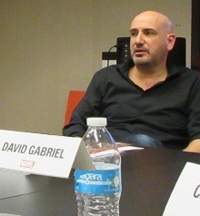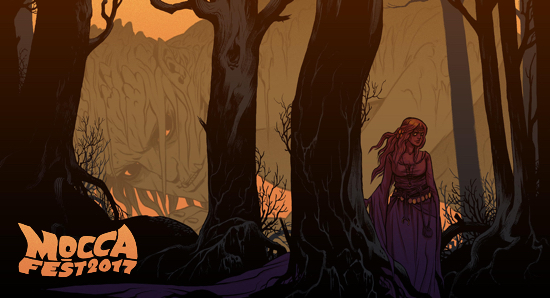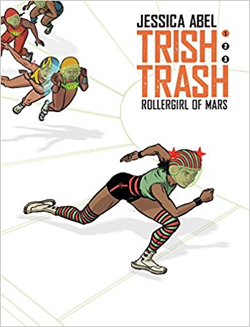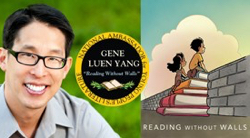Mindy Newell: This Is My Country
“This is my country, Land of my birth, This is my country, Grandest on Earth
“This is my country, Land of my choice, This is my country, Hear my proud voice.
“I pledge thee my allegiance, America the bold, For this is my country, To have and to hold”
This Is My Country (1940), Dan Raye – Lyrics, Al Jacobs – Music
Wow!
The sixth season of Homeland ended last night with an absolutely bang-up twisting cliffhanger and a final shot of Carrie staring at the Capitol building, mirroring the opening montage of earlier seasons that ended with Nicholas Brody staring at the White House.
Showtime did not give Homeland much publicity this year; the network instead focused on Billions – which stars Damien Lewis, who played the conflicted, and ultimately very lost, Sgt. Nicholas Brody. But after six years Homeland continues to stay relevant; this season it delivered hard punches to topical issues, with brilliant extrapolation of real world news stories and events by the producers and writers. I don’t want to spoil anything for you, so I won’t go into details except to say that this year’s story arc revolved around a President-Elect whose distrust of the nation’s intelligence services leads her to distrust the entire American political system – as Dar Adal tells Saul Berenson, “There’s something distinctly un-American about her” – and the manipulation of not just the public but the government itself through fake news, deep state conspiracy theorists, and paranoia.
There has been much ado about “diversity in comics” lately. Almost at the same time the Marvel Retailer Summit and Senior Vice-President David Gabriel made waves – tsunamis – over “female superheroes” (please read Mike Gold’s ComicMix column here), Rich Johnston over at Bleeding Cool posted this . I think the former is basically a tempest in a teapot and is really about Marvel sales – Saturday’s New York Times (April 7) had an article by George Gene Gustins in its business section – “Marvel Comics May Have Slumping Sales, But Don’t Blame Its Diverse Heroes” which takes a closer look at what’s going on in the Bullpen:
“While ‘Marvel Blames Diversity’ makes for a juicy headline, the issue is more nuanced.
“As Brian Hibbs, the owner of the two Comix Experience stores in San Francisco, said in an interview, Marvel has recently been experiencing a “massive sales slump” because of more basic factors: the frequent restarting of series with new No. 1 issues; fan fatigue over storylines that promise changes but fail to deliver; and the introduction of a deluge of new series. There is also the expense of comic collecting.
“This month, for instance, Marvel began rolling out a revamped lineup of X-Men titles, which will result in seven new series – two of which will publish twice a month, the other five monthly. That’s a lot of comic books, and they run an average of $3.99 each.
“The first issues will undoubtedly sell well thanks to the multiple covers and the collector’s tendency to buy them all. But subsequent issues are expected to follow the industry pattern of lower sales over time.
“’Marvel doesn’t have “more than one or two comics selling 60,000 or 70,000 copies,’ Mr. Hibbs said, adding that this trend has virtually nothing to do with ‘this diversity canard.’”
However, the later article is about anti-Semitism and anti-Christian (and by inference, anti-any religion except Islam) sentiments hidden as “Easter eggs” in the first issue of X-Men Gold by its artist, Ardian Syaf, Author G. Willow Gordon, (Marvel’s Ms. Marvel, Vertigo’s Cairo and Air, and the novel Alif the Unseen, along with other works) addressed Mr. Syaf and the controversy on her blog site (Here is What Quran 5:51 Actually Says).
All I can say is this:
If that’s truly how you feel, Mr. Syaf, then why do you work in an industry whose roots are firmly established in Judeo-Christian beliefs and mythology? Do you know that Stan Lee and Jack Kirby were born Stanley Leiber and Jacob Kurtzberg? That Superman was created by two kids named Jerry Siegel and Joe Shuster? That the very first “comic book” was the brainchild of two men named Max Gaines (nee Max Ginzberg) and Harry L. Wildenberg?
I believe that the upswing in overt and covert bigotry and intolerance in this country is directly related to the man who sits in the Oval Office at present. A man who cries about the women and babies killed in Syria, but won’t lift his ban on Syrian refugees. A man who decries the use of sarin gas – a weapon of mass destruction – but told Chris Matthews during the campaign, “Why do we have nukes if we’re not going to use them?”
Crocodile tears.

















